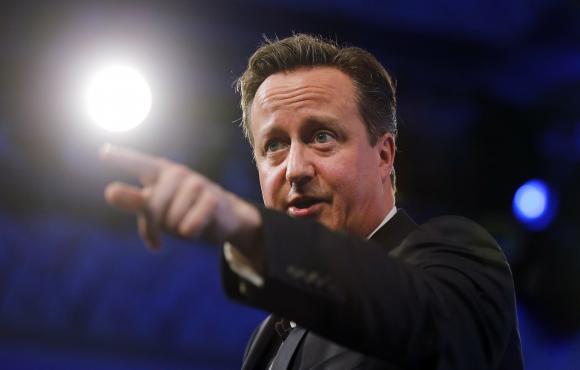David Cameron was left red-faced after German Chancellor Angela Merkel ruled out “full on treaty change” in her meeting in Westminster yesterday.
The German Chancellor agreed with Mr Cameron that there exists a need to stop the British benefits system being abused, but would go no further in her agreement, the Telegraph reports.
Mrs Merkel, who has previously said she would support Britain leaving the EU rather than any watering down of the fundamental principle of free movement within the EU, once again reiterated her opposition to the types of changes Cameron was initially proposing.
Speaking in Downing Street yesterday she said she would “very much like” Britain to stay a member of the EU but said that freedom of movement cannot be questioned “in any way”.
In an attempt to appease the British, Mrs Merkel said Germany was prepared to “work together” with Britain to stop abuses of the benefits system which have angered voters in Britain and other richer countries in the EU.
Germany itself recently won a case in the European Court of Justice over denying benefits to immigrants who had never had a job in the country. The ruling was seized on by Mr Cameron’s team as proof that it was not only the UK who wanted reform of the rules governing the political bloc.
Mrs Merkel said: “We have no doubt about the principle of freedom of movement being in any way questioned, but we also have to look at abuse of that. We want to say to our local authorities that abuse needs to be fought against so freedom of movement can prevail.
“One has to take a very close look at the social security systems of individual member states that are not part of communal law – to what extent they have to be adjusted to this situation. That is something we have to address together.”
And she referred to the ECJ, saying “Where there is common ground is that the last ruling of the ECJ was helpful as regards the abuse of social benefits and entitlement.”
At the joint press conference, the leaders seemed to have reached some common ground on where to start with reforms, as Mrs Merkel said she was ready to seek “common solutions” to British concerns about EU rules and the consequences which have been felt, predominantly over jobs, wages and social security provisions, adding “where there’s a will there’s a way.”
But there is no doubt that these latest suggestions are a very watered down policy change to what many Conservatives were hoping for, which was that Britain would reclaim certain powers from Brussels including the right to determine her own immigration policy.
The Prime Minister’s suggestion is that in the future, migrants will have to have a job offer before coming to the UK and, in a policy similar to that which France has had for a to make them wait four years before being eligible for certain benefits; and a ban on sending benefits to children abroad.
Mrs Merkel’s comments will be seen as a sign she is willing to support many changes demanded by Mr Cameron.
The Prime Minister has pledged to renegotiate Britain’s relationship with the EU before holding an in-out referendum in 2017 at the latest.
At the Conservative Party conference in October, he said that he would put the issue “at the very heart of my renegotiation strategy for Europe”. However, he was later forced to say that he backs the “principle”, which allows an unlimited number of immigrants to live and work in the UK.
Mr Cameron said: “I welcome Mrs Merkel’s willingness to help find solutions to the reforms that EU badly needs to adapt to the changing world. I support freedom of movement and what I don’t support is the abuse of freedom of movement. That is what we have to change.”

COMMENTS
Please let us know if you're having issues with commenting.